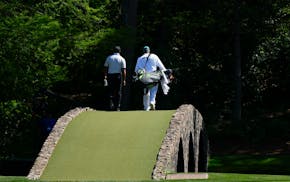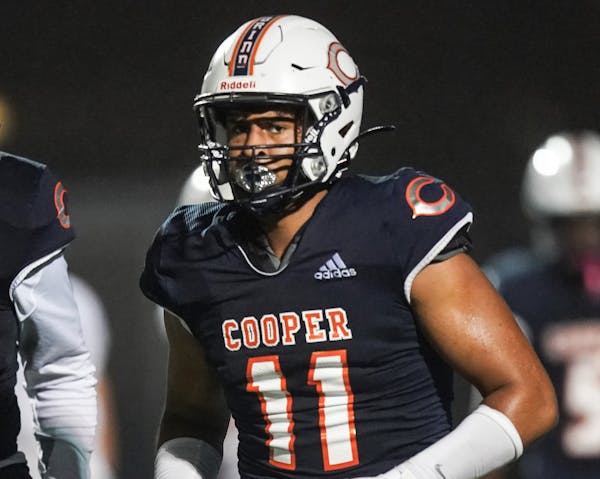Minnesota sports fans have turned their Homer Hankies into crying towels again following first-round playoff losses by the Wild and Wolves.
This is a recent trend. Minnesotans have whined about big-game losses for only the last 31 years.
They have been doubly wrong.
While they were complaining about Minnesota sports teams in the 2000s, the Lynx were winning four WNBA titles in seven years, and missing a fifth title by one rebound.
Over the past seven years, there was another team proving that it can win big and big-ish postseason games: That bastion of athletic dominance known as the University of Minnesota Golden Gophers football team.
After decades of mediocrity and a seven-game bowl losing streak that dated from Glen Mason in 2005 to Jerry Kill in 2015, the Gophers have won five consecutive bowls.
Tracy Claeys won his only two bowl games as head coach. His teams beat Central Michigan 21-14 in the Quick Lane Bowl in December 2015, and Washington State 17-12 in the Holiday Bowl in December 2016.
Beating a Central Michigan team that finished 7-6 is not much of an achievement, but the Gophers' defensive performance against a talented Washington State team was masterful.
Current Gophers coach P.J. Fleck is 3-0 in bowl games. His teams beat Georgia Tech 34-10 in the Quick Lane Bowl in December 2018, Auburn 31-24 in the Outback Bowl on Jan. 1, 2020; and West Virginia 18-6 in the Guaranteed Rate Bowl last December.
The Outback Bowl victory remains a high point for Gophers football since Murray Warmath won the Rose Bowl in 1962.
The Gophers had won five bowl games before 2015. They have won five bowl games since.
Is this too small a sample size to take seriously? No. It's football. The Super Bowl is a self-contained small sample size and it means everything in the NFL.
Winning bowl games reveals a lot of positives about a program:
- The ability to get to the bowl game.
- The flexibility to coach a team during a long break following a long, emotional regular season.
- The coaching chops needed to out-think an opponent when given plenty of time to think and plan. (This is why NFL teams make such a big deal of coaches' records following byes.)
Claeys was an excellent defensive coach who fared well, on the field, in his short stint succeeding Kill.
Fleck is 35-23 at Minnesota, including 21-22 in the Big Ten.
A losing record in the conference? Isn't that a bad sign?
Not in the context of recent Gophers history. Claeys was 6-8 in the Big Ten. Kill was 14-21. Tim Brewster was 6-21. Mason was 32-48. Jim Wacker was 8-32.
You get the idea.
Fleck oversold the idea that he was inheriting a terrible team, because Claeys had just won a bowl game.
He was correct in selling the notion that he was taking over a mediocre program. Mason won at Kansas and couldn't win big at Minnesota. Kill was admired throughout the coaching profession but had trouble winning at Minnesota. Brewster could correctly spell one of Vince Lombardi's names.
Given recent Gophers history, going 21-22 in the Big Ten is impressive, and winning three straight bowl games is a stunning achievement.
I've nitpicked Fleck's oratorical style and criticized him for working so hard to denigrate his predecessors, but, let's be honest, few college football coaches are endearing.
College football coaches are hired to win games, sell tickets and avoid (getting caught committing) recruiting violations. Winning bowl games is both rewarding for the current members of the program and useful in attracting new recruits.
Like him or mute him, Fleck is doing the job.
This season, Fleck's program will feature one of the nation's best backs in Mohamed Ibrahim. If the coaching staff can get quarterback Tanner Morgan to revert to his 2019 form, the Gophers will be playing in another bowl, one Minnesotans will be justified in viewing with an alien but earned optimism.

Souhan: This is KAT's chance to prove Flip Saunders was right

Souhan: Why Tiger Woods should keep swinging
Souhan: Scheffler wins Masters again, shows what makes him special
Morikawa falters in final round at Masters


